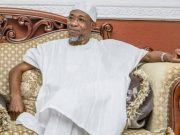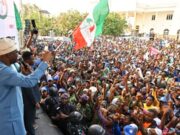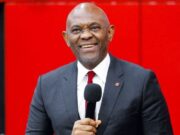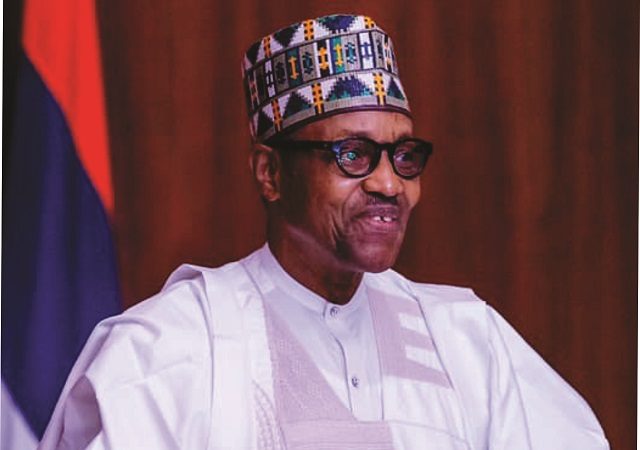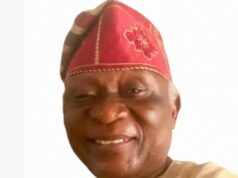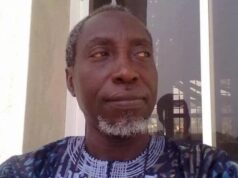You may not like their reckless consumption of drugs, the airs they put on as “stars” and the pumped-up peacock ego sometimes exhibited by them at their apogee of stardom.
The reality, however, is that, popular culture musicians, indigenous African musicians, that is, and even Africanist musicians among them, are prophets of some sorts. The ones who consume cannabis among them, a banned drug said to be native to Asia, claim that at the peak of the twirling of smokes from their nostrils, they communicate with the spirits of Africa who hand them inspirations beyond the ken of ordinary eyes.
One of the advocates of the above conversation was Jamaican-born reggae musician, the iconoclast Winston Huber MclnTosh, otherwise known as Peter Tosh. In a 1971 song he did entitled Here Comes the Judge, Tosh predicted the recent pulling-down-of-statues judgment that came the way of slave raiders and traders who died almost five centuries ago and the retributions they are getting from progenies of black slaves who they mindlessly killed in unconscionable pogroms.
In the song, said to be one of the “blackest and darkest” songs ever sung by Tosh, delivered in a conversationist style, he played the role of a Judge in what he prologued with explanation. Tosh said that, by his mimicry of the court he traversed severally in his brawl with the Jamaican law, he wasn’t reverencing the “colonial judicial shitstem (system).” In the song, Tosh not only displayed his deep sense of global and African history, he simulated a day of judgment for these slave raiders/traders. These slave merchants, you will recall, subsequently gained huge prominence in Europe and the Americas as mascots and founders of those lands.
Here Comes the Judge began by a shout of “Here Comes the Judge/
Hear ye him/God save the African king/Anyone have anything to say before this just judge?/Come say it now and say it like you (are) glad, not like you (are) mad/For this judge have no mercy!” Thereafter, the “Judge of Righteousness” began to call out the accused. In the front of the bench appeared Christopher Columbus (who he deliberately called Christopher Combulus), Francis Drake, Bartholomew De Los Casos, Vasco De Gama, Alexander the Great, (who he again referred to as Alexander so called the Great), John Hannon, James Grant, David Livingston, John Constantine, Henry Morgan and Marco Polo. The accused answered to the charges with trembling and trepidation. The charges against them, pronounced the Judge, were that, “You’re all brought here on, Count one: Robbing and raping Africa; Count Two: Stealing black people out of Africa; Count Three: Brainwashing black people; Count Four: Holding black people in captivity for more than 300 years; Count Five: Killing over 50 million black people without a cause; Count Six: Teaching black people to hate themselves.”
For Tosh the Judge in his judgment against the rapists of Africa, subtlety was not his credo but crudity, measure for measure. While finding them guilty and sentencing them to death by hanging, he demanded their alocutus thus, “If any of you have anything to say before this execution/Say it quick, say it glad/This judge is getting impatient/Contempt! – No mercy!” And then the judgment: “The penalty for all this/Each of you must be hanged by the tongue/No appeal will be accepted.”
In arriving at the above judgment, Tosh displayed a deep sense of history. Hanging the tormentors of Africans by the tongue was a throwback to a process of mutilation called the Columbian Necktie or flannel cut, a crude and gruesome method of execution predominant in South America and often associated with the Columbian drug czar, Pablo Escobar. It was equally invented during the La Violencia Columbian civil war bipartisan violence between 1948 and 1958. The process of this execution is that the victim’s throat was slashed horizontally with a knife and the tongue was then pulled out from the open wound.
So when, at the mindless killing of George Floyd in Minneapolis by cops, America and the world literally erupted in a huge pall of fire, leading to the Black Lives Matter campaign, arson and looting, as well as the pulling down of statues in major cities of Europe and America, it would seem that Tosh’s “judgment” had come for these venal beacons of slavery, even in their graves. Chief among these were the statues of leading slave traders/raiders like Columbus. A few weeks ago, protesters pulled down a statue of Columbus outside the Minnesota State Capitol. They stated that they considered Columbus “a symbol of genocide against Native Americans.” A rope was said to have been thrown around the 10-foot bronze Columbus statue and it was pulled off from its stone pedestal.
Slave trade and imperialism also received a bashing after the Bristol monument to Edward Colston, a 17th century slave merchant, was pulled down and thrown into the harbor in the United Kingdom. Other slave traders, slave owners, colonists and imperialists whose statues are being considered for toppling were among Britain’s most famous historical figures. These included King Charles II, Oliver Cromwell, Horatio Nelson and Sir Francis Drake, as well as slave owner, Robert Milligan.
For us as Nigerians, there is the need to internalize some lessons of this retribution for the oppressors of black people, centuries after their evil acts and explore the nexus between this recompense and the Nigeria of today. What actually is in store for us to imbibe in the June 12 celebration of last Friday, for which the Muhammadu Buhari government has literally been gloating? What is the state of our democracy today and what statues do we need to pull down?
As I stated on an Ibadan radio programme I featured in last Friday, for all it is worth, we must be thankful to Buhari and his government for deeming it fit to accord the heroic exploits of June 12 that memorable and symbolic mention it deserves. Two kinsmen of the late symbol of that struggle, Ernest Shonekan and Olusegun Obasanjo, callously and peremptorily attempted to outlaw that date from the memory of Nigerians. The two did more than the slave merchants whose statutes are being pulled down in Europe and America today in their quest to perish the memory of human struggle for righteousness.
However, it would appear that Buhari was merely playing politics with his memorialization of June 12. He was one of the June 12 “slave raiders” who abetted and played key but evil roles in the infernal struggles to obliterate its memory. It is on record that Buhari was like a Second in Command to our own Christopher Columbus, the very same evil Sani Abacha. In Buhari’s Petroleum Trust Fund (PTF) was an alternate government which was used to glorify and reify Northern ascendancy and funds funneled towards attaining the routing of the only obstacle on their way – June 12. In the very early years of his government, Buhari impudently maintained that the Columbus of that government, Abacha, in spite of glaring national larceny of our commonwealth, was not a thief, until very recently when he was confronted with the raw facts of the General’s monumental heist. So when Buhari, ostensibly for the sake of holding captive the minds of Southwest Nigerians while he continued watering the trough of the slave-raiding of our minds, engaged in the labeling of June 12 as Democracy Day, he was merely threw hay to our heifers.
This is because it is a gross insult on name-prefixing to call Nigeria a democracy. What obtains today under Buhari is worse than a dictatorship. It is an atavism, a rehash of the injustice of the Columbuses who diffidently stood against an acknowledgment of the humanism in black people. When things get to the level of democratic anarchy that is ongoing in the politics of Nigeria and the governance of the Nigerian state under the Daura-born General, people are faced with two choices: rebel against it or stand arms akimbo as blacks did while Columbus was raiding and killing them. Or, behave like the captured Igbo slaves, who, in a mass suicide in 1803, took control of their slave ship, refusing to submit to slavery. A shipload of these captives of West African origin, after surviving the Middle Passage and landed in America, preparatory to be auctioned off in the local slave markets, had chosen to commit mass suicide.
In his “Democracy Day” broadcast, Buhari reeled into several “achievements” that were encapsulated in statistics which have no bearing on the lives of the people. Accepting but not conceding that those statistics were true, what bearing do they have on the lives of Nigerians? While the curves of Buhari’s statistics are going up, the reality of Nigerians’ poverty, hopelessness, injustice and despondency are on the uptick. More fundamental is the unprecedented level of divisiveness that is ravaging Nigeria under Buhari. Nigerians had never been this divided, ever. The government should have done a comparative analysis of the level of Nigerians’ togetherness on June 12, 1993, and the “togetherness” in place today; the belief of Nigerians in Nigeria in 1993 and the same today.
While Buhari was busy having his dalliance with statistics and mouthing the shibboleth of “democracy” on a Democracy Day that he engaged in name-prefixing with, one of his lieutenants who he obviously has no control over, Adams Oshiomhole, was busy wee-weeing on the furnace of democracy. Nigerians, now accustomed to watching the surreal drama of the Columbuses among us, are less bothered by the Oshiomhole show of shame. On that same “Democracy Day,” Oshiomhole, having understudied the atavistic throwback into Stone Age despotism perfected by the Garrison Commander of Lagos in the inhuman and undemocratic muzzling of Akinwumi Ambode out of the race for a second term of office in Lagos, swung into action in Edo and rehashed that same grisly script.
It does not matter that it is a gross slap on equity and good governance that Oshiomhole, who is up in arms against Godwin Obaseki, is the same person who superintended over the decision to spike him from the governorship race. It does not matter if Obaseki is changing the situation of his Edo people or not. He has to be sacrificed to the impish god. What matters is that a Columbus’ wish for vengeance against an unbendable slave must be accomplished. It doesn’t matter, even if it is a laughable equivocation, that an Oshiomhole, who is not known to have a decipherable Primary School certificate, sat on the earlier speculation of whether Obaseki attended the University of Ibadan or not. In our very before, Oshiomhole would manufacture his lickspittle doll, put it in Edo Government House and we will stand by and watch, thinking it does not have any effect on us? Doesn’t it occur to us that, like Lagos under Ambode, one single man is about to incinerate performance in office and in its stead, plant the seed of self, using the decoy of party supremacy? And we think it is politicians’ usual messy affair? Yes, from the look of things, Obaseki is stubborn but, since when did stubbornness and not performance, the barometer with which to measure suitability for office? Since when did Oshiomhole approximate the electorate, the good people of Edo State? Doesn’t it occur to us that if Obaseki had been Oshiomhole’s plasticine which he could bend at will, we will not have this circus that we are watching?
People lose track of the real argument when they engage in the equivocation of “don’t bite the finger that fed you.” It is a fecund narrative often deployed by oppressors and godfathers. What if that finger stands in the way of the good of the majority; is diseased and needed to be chopped off? Even at that, Obaseki has argued consistently that the “feeding” is the other way round as his was actually the hand that fed Oshiomhole and brought him into government. In Ondo State, it is very likely that the Buhari government’s Columbus stand against democracy, manifest in Oshiomhole, will repeat its anti-democratic feat. Why would society stand by and allow self-serving graduation of self-hate into national discourse? Why would society stand by, in the name of so-called party supremacy, and allow the conversation of one man seeking to stop his nemesis from running under the banner of the All Progressives Party (APC) become the decider of the future of the people? In both instances, Oshiomhole merely promoted and projected personal hate into this critical decision of the lives of millions of people. That the two governors of Edo and Ondo performed to the admiration of their people is immaterial.
In Katsina State, like they did to Columbus, the people pulled down the “statue” of their slave traders – Buhari and Governor Aminu Masari. Their beef was that both of these people vicariously promoted their pains by keeping their arms akimbo while they were being killed. A Buhari who stood by like the Columbus effigy, while about 100 of his people were being massacred by Boko Haram insurgents, needed his statue pulled down.
Chinua Achebe once wrote in his Things Fall Apart that an old woman feels uneasy when dried bones are mentioned in a proverb. While the Columbuses in Nigeria – Buhari, Ibrahim Babangida, David Mark, Bola Ahmed Tinubu, their hirelings and many of the cast of the gruesome flick of June 12 – watch the narrative of the pulling down of the statues of slave merchants, I hope they are feeling uneasy? The recompense for Columbus and his ilk should be a wake-up call to all of them. Their day of judgment could come now; it could be, like the case of Vasco De Gama and others, in four to five hundred years’ time. One thing is however certain: None of their evil acts against the state, against the people, would go without their statues being pulled down.
- Dr Festus Adedayo, a popular columnist sent this in from Ibadan, the capital city of Oyo State.
























